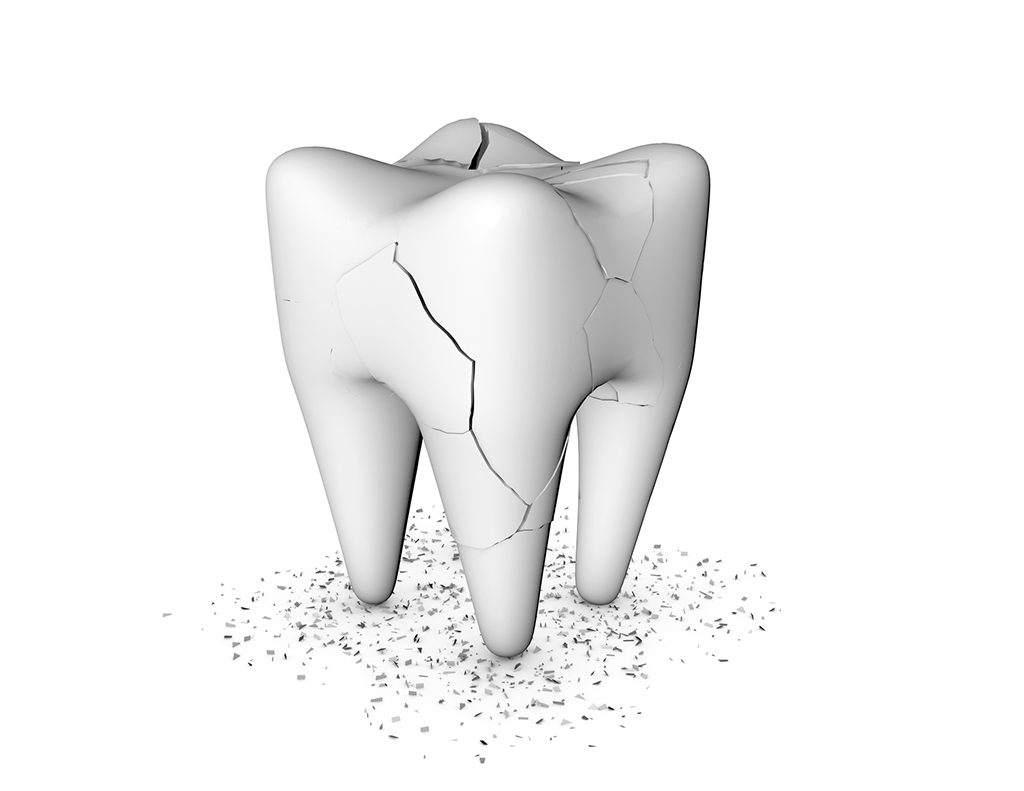
When You Need An Oral Surgeon For An Emergency Injury | McKinney, TX
Photo By image_jungle at istock
It’s the weekend and you’re all geared up to tackle a long-neglected to-do list for an upcoming backyard barbecue. You decide to start by weeding out the vegetable patch. Unfortunately, you leave the hoe lying on the ground and trip over it. When you land, you notice that you’ve landed on a rock and have excruciating pain radiating out from your jaw.
After icing your jaw for 15 minutes, you notice that your face has become quite swollen. However, you swallow a few over-the-counter painkillers and decide it can wait until the beginning of the workweek when you can see your general practitioner.
When you face this kind of facial injury, it’s important to know when to wait and when to seek immediate help. In this case, with severe pain and swelling, a phone call to your doctor’s emergency line or a trip to the emergency room would have been a better move. Depending on the injury, your doctor or dentist might refer you to an oral surgeon to diagnose and treat emergency oral injuries with nonsurgical and surgical solutions.
Your Local Emergency Oral Surgeon
We receive many of these referrals at NextGen OMS near McKinney, TX. Unfortunately, facial injuries like this happen all too often. Like any other part of the body, some injuries are less critical than others. It may be hard to tell when to drop your plans and seek immediate medical attention.
If you have the following symptoms, we recommend that you call our office after speaking with your dental or medical professional.
- Severe pain
- Swelling
- Broken teeth
- Redness or other signs of infection
- Bleeding
- Trouble moving your jaw
If you cannot reach your dentist or doctor, head to the nearest emergency department. Only trained personnel can determine whether you need emergency surgery or other specific treatment for your oral injury.
Common Emergencies Treated by an Oral Surgeon in McKinney, TX
Here are some conditions treated by our oral surgeon at NextGen OMS.
Chipped or Damaged Tooth
You can chip your tooth by making a bold sports play or slipping and falling on a wet floor. In either case, you could walk away with impressive damage to your tooth and the surrounding tissue. Immediately following the injury, use warm water to rinse out your mouth. Apply an ice pack to help keep swelling under control. If possible, bring the broken pieces with you. We may be able to use them to repair the tooth and restore healthy functionality.
Knocked-Out Tooth
If you have been involved in a car accident or suffered major trauma, you could end up losing an entire tooth. Rinse the lost tooth in saltwater and put it back in your mouth, if possible. if injury prevents you from doing so, place a tooth in saltwater or milk until you can get to our office. Treatment within one hour greatly improves the odds that your natural tooth will heal on its own.
Infections
If you have a laceration on your face or trauma damage to your oral tissue, you will probably experience swelling and redness. In order to prevent the spread of an infection, it’s important to receive treatment as quickly as possible.
Injuries to Tongue, Cheeks, Gums, or Lips
If you severely damage or gums, tongue, lips or cheeks, you may need the services of our oral surgeon, Dr. Eftekhari. this type of emergency may cause excessive bleeding, prompting you to visit the nearest emergency room. On your way to the hospital or your dentist’s office, you can use gauze to apply pressure and help stop the bleeding.
Rinsing with salt water can also help slow bleeding for an injury inside your mouth. NextGen OMS treats emergency injuries, but it might be a good idea to call ahead to find out whether you should go straight to an emergency room for a severe injury.
Fractures
Whether you’re a professional boxer or a child on the playground, fractures can occur as a part of everyday life. The cheekbones and nose, for example, are particularly vulnerable to fractures and damage due to falls, car collisions and other events. An oral surgeon can treat the initial trauma and also perform maxillofacial surgery to improve the appearance of the damaged area.
Many people also injure the jawbone, which lies just below the ear down to your chin. Contact an oral surgeon immediately if you suspect that you have fractured your jawbone.
The following symptoms may indicate that you have fractured your jaw:
- Bruising and tenderness below the ear
- Misaligned bite
- Difficulty chewing or opening and closing your mouth
- Double vision
- Pain that doesn’t get better
TMJ
The temporomandibular joint holds your upper and lower jaw together. It creates a hinge that enables you to speak, eat and breathe properly. If you injure this joint, it can cause a great deal of pain that radiates throughout your face, jawline and head. With immediate action, you can get proper treatment and expedite the healing process.
In some cases, injuries to the cheeks, jaw, face or mouth require the services of an oral surgeon. Whenever possible, we treat your condition non-surgically to avoid even the slightest risk associated with certain surgeries.
Movements to Avoid
Try not to blow your nose or sneeze immediately after an injury to your mouth or face. It’s important to avoid as much pressure as possible on the impacted area. Excess physical activity can aggravate your injuries and even lead to an infection.
Perhaps you need emergency services for a broken tooth or facial trauma. We will provide an array of options when it comes to treating oral and facial trauma.


